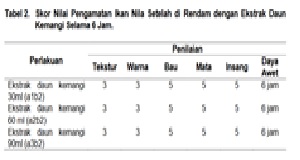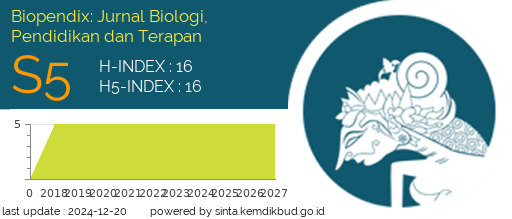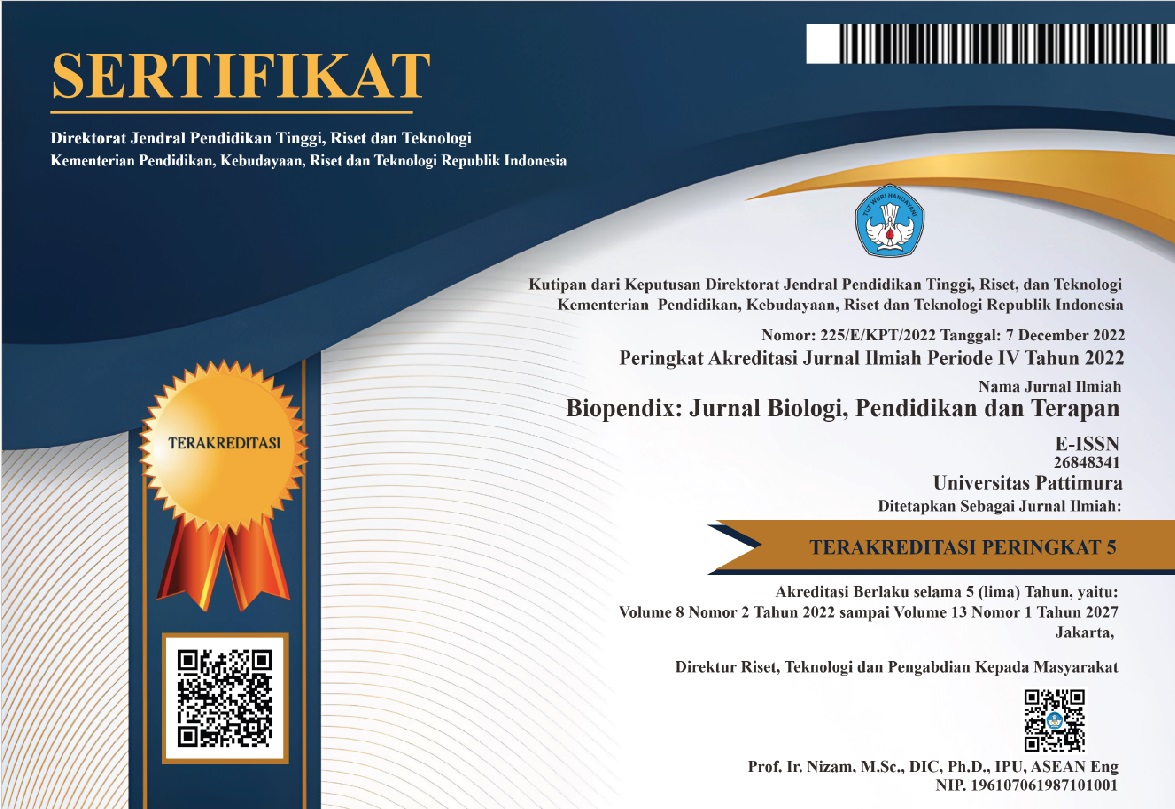PENAMBAHAN EKSTRAK DAUN KEMANGI DAN LAMA PERENDAMAN TERHADAP MUTU DAN DAYA AWET IKAN NILA (Oreachromis niloticus) SEGAR
Abstract
Background: Nila is a tropical fish that likes shallow water. Nila has better nutritional content compared to other freshwater fish, but Nila is also a food that is quickly damaged and spoiled. Pharmacological testing shows that basil has antibacterial activity. Basil leaves contain saponins, flavonoids and tannins which have many benefits besides being a spice in cooking it is also beneficial for bodily health.
Method: This study immersed Nila in basil leaf extract (30 ml, 60 ml, 90 ml) dissolved in water to a volume of 0.5 liters for 30 minutes. After that it is stored at room temperature for 0 hours, 4 hours and 6 hours.
Results: The results of the study using the ANOVA test showed that with the addition of basil leaf extract T1 (30ml), T2 (60 ml) and T3 (90 ml) there was no change in texture, color, odor and eyes on the 4 hour immersion while in the 6 hour immersion there was a change in texture and color.
Conclusion: Based on the results and discussion above, it can be concluded that the addition of basil leaf extract to the freshness of Nila can be seen in 4 hours of immersion because, the results obtained are good, there is no change in the texture, color, odor and eye categories based on 4 sensory test scales. This happens because there is no enzyme, microorganism and chemical activity so that the freshness of the fish is maintained.
Downloads

Authors who publish with this Journal agree to the following terms:
- Author retain copyright and grant the journal right of first publication with the work simultaneously licensed under a creative commons attribution license that allow others to share the work within an acknowledgement of the work’s authorship and initial publication of this journal.
- Authors are able to enter into separate, additional contractual arrangement for the non-exclusive distribution of the journal’s published version of the work (e.g. acknowledgement of its initial publication in this journal).
- Authors are permitted and encouraged to post their work online (e.g. in institutional repositories or on their websites) prior to and during the submission process, as it can lead to productive exchanges, as well as earlier and greater citation of published works




 2
2






